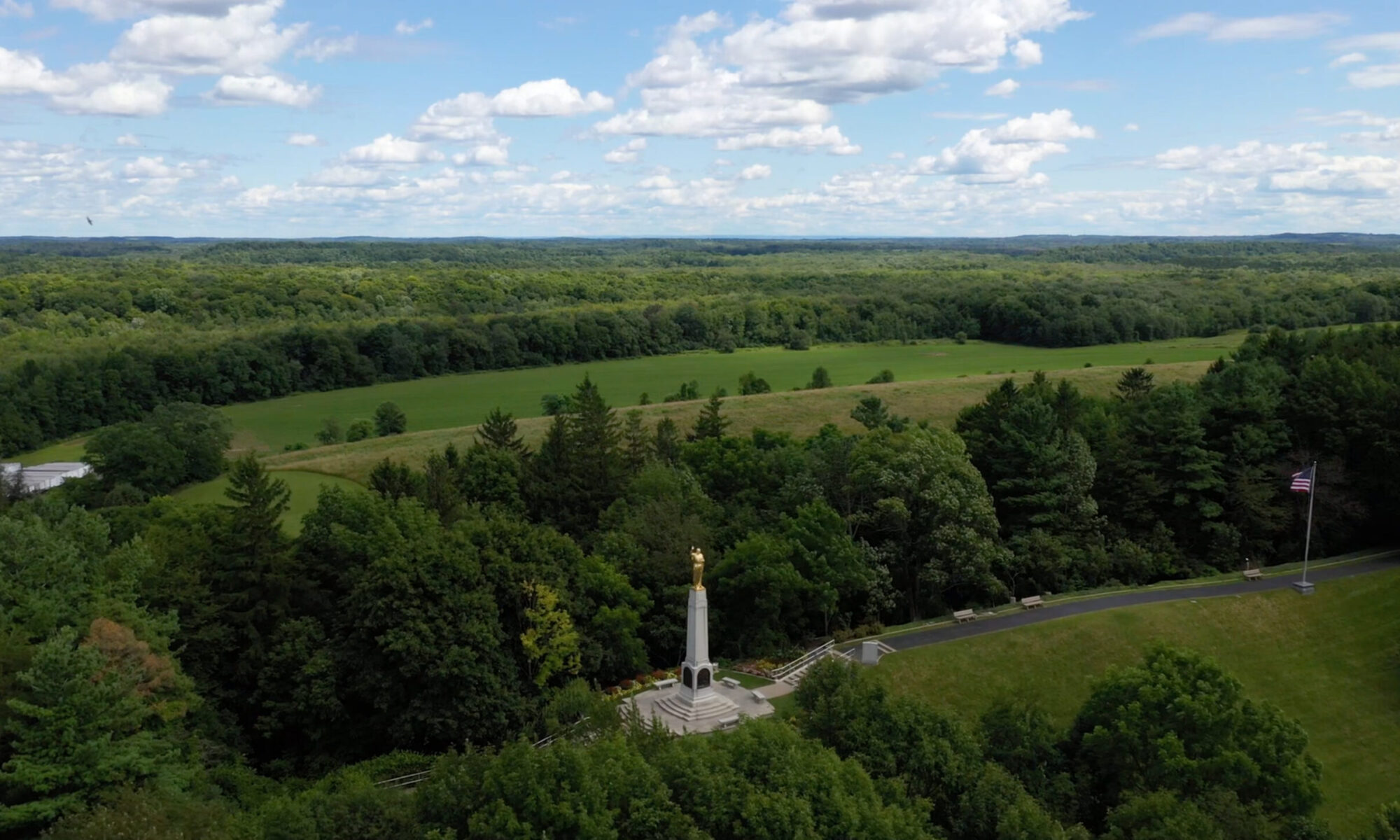Robert W. Smith, son of James and Lucy Smith, was born on January 8, 1796 in Southington, Hartford County, Connecticut. Robert moved to Palmyra as a young man.
Robert Smith and Henry Jessup Connection
Robert worked as a foreman in the [Henry] Jessup and Foster Shoe Factory on Main Street in Palmyra.[1] It should be noted that the Prophet Joseph Smith said that Henry Jessup was “without scruples.” At the time of Robert’s employment, Jessup had holdings all over town and owned a basin on the Erie Canal.
Robert married Miranda G. Jessup, daughter of Henry Jessup, who was seven years his junior. To their union were born six children. Following their marriage, Robert and his father-in-law, Henry Jessup, set up several branches of the shoe and leather business in Western New York under the firm name Smith, Jessup & Company.[2]
Robert was a leader in the Western Presbyterian Church in Palmyra
Robert was the director of the Palmyra Presbyterian Society and a teacher in the Sunday School Union during the years that Alfred E. Campbell served as the pastor.
Robert testified on March 29, 1830 that the Smiths did not appear at the Presbyterian session as requested. Complainants, believing that they had satisfactory evidence that the citations had been duly served the Smiths, resolved that Lucy, Hyrum, and Samuel Smith be censured. The charge against the Smiths was sustained by the testimony of Henry Jessup, Harvey Shel, Robert W. Smith, and Frederick U. Sheffield.[3] Lucy, Hyrum, and Samuel Smith were suspended from the Sacrament of the Lord’s Supper.[4]
Robert was the Grandmaster of the Mount Moriah Masonic Lodge in Palmyra
When the 116 pages were stolen, Robert was the Grand Master, also referred to as Worshipful Master, of the Mount Moriah Masonic Lodge No. 112 in Palmyra.[5] He was elected to the office of grand master and entitled to oversee a “Masonic jurisdiction.” He presided over the Mount Moriah Lodge which by June 24, 1828, had fifty-nine members. The Masonic members met in the lodge room, a block off Main Street behind the Western Presbyterian Church.
Robert lived out his days in Palmyra
On December 4, 1833, when Doctor Hurlbut came to Palmyra seeking affidavits against Joseph Smith, Robert signed the “Testimony of 51 Neighbors,” later printed in Mormonism Unvailed.[6]
Robert died on February 3, 1848 in Palmyra and was buried in the Palmyra City Cemetery.
[1] Cook, Palmyra and Vicinity, p. 30.
[2] Wayne Sentinel, February 1, 1840.
[3] See Minutes of Testimony on file with the clerk, in archives of the Western Presbyterian Church of Palmyra, NY.
[4] Records of the Session 2:11–12, in the archives of the Western Presbyterian Church of Palmyra, NY.
[5] Vogel, Early Mormon Documents, 2:52–53.
[6] Howe, Mormonism Unvailed, 366–367.
